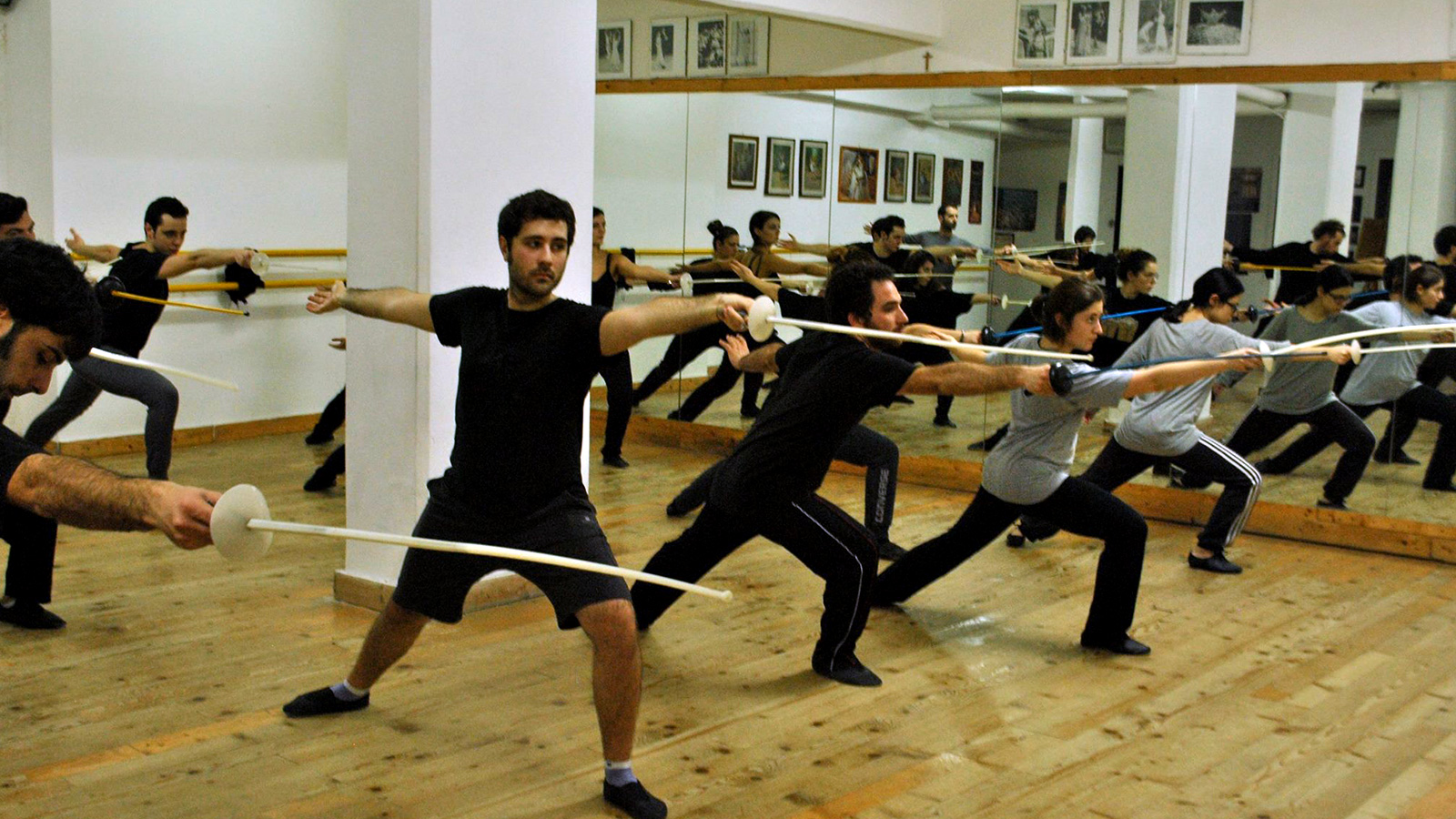Why should an actor learn fencing?
Moving on a thread, always in search of balance step after step, gesture after gesture.

Like a tightrope walker focused on the destination, on a single moment, on the space that surrounds him.
Through the practice of fencing, the actor acquires knowledge of his own body, of his body in space, enhances his interaction and reaction skills and takes complete control over time.
Therefore a good knowledge of fencing is essential in a combat scene, armed or disarmed, modern or ancient, within a theatrical work. But it is even more important for the training of the actor himself. Moreover, through his words Mejerchol’d teaches us that "the actor is such because he is reactive" and what better than fencing sums up these words?
Why fencing for an actor? Why fencing for a dancer?
The attitude element, the conventions of the theater, the sporting gesture. The harmony of these three elements begins in the best theaters and dance schools (especially in Russia and in France) in the early twentieth century, where masters teach their students how to be self-aware through sports practices. Thus fencing is seen as a way to increase technical, physical and psychic skills. Fencing is a martial art with white weapon, but it is also a set of physical and mental practices related to combat. Through fencing, you can learn the principles of body mechanics, movement, balance, coordination and elegance. The similarities between fencing and play are many, among the most important are those on space and reaction: in a duel we need peripheral vision in order to keep in check the opponent and the environment that surrounds us, we need to keep one eye on the action and one on the scene; a duel contains actions and reactions, we could even say that it contains many continuous reactions, a sort of domino effect like a scene, which in any case is never static. Fencing is useful to always be ready for a script containing a duel, but above all, it must be learned for its ability to improve the actor’s skills through the knowledge of the technique.